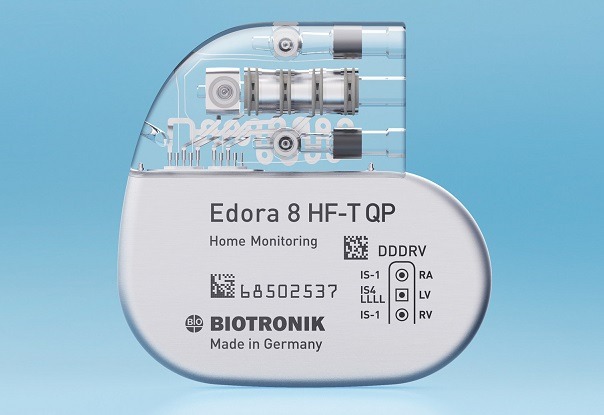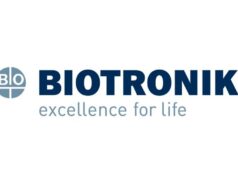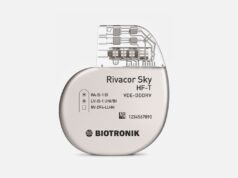
The US Food and Drug Administration has approved Biotronik’s Edora HF-T QP magnetic resonance (MR)-conditional cardiac resynchronisation therapy pacemaker (CRT-P). The device—which features MRI AutoDetect technology—has now been commercially launched by the company in the USA.
Outside of the USA, Biotronik launched the Edora CRT-P series in March of this year.
With a volume of 15cc, according to a company announcement, Edora HF-T QP is the smallest MR conditional CRT-P available in the USA. It has a longevity of nearly 10 years. In addition to MRI AutoDetect, the device features Closed Loop Stimulation (CLS) and Home Monitoring. This remote system is designed to automatically send data remotely every day. Studies have linked this feature to significant reductions in mortality due to heart failure and hospitalisation for worsening heart failure.
“Patient care is a constant journey. It does not end when the patient leaves my office or recovers from a procedure. As healthcare providers, we must think beyond today and help ensure patients are appropriately cared for throughout their lifetime,” says Roderick Tung, a cardiac electrophysiologist in Chicago, USA.
Biotronik’s MRI AutoDetect technology is designed to improve patient safety by minimising the time the device is in MRI mode and remedying logistical programming challenges for physicians and health systems. Once activated by a clinician, MRI AutoDetect should automatically recognise when a patient enters an MRI field and changes the device programming to MRI mode.
“MR-conditional CRT-Ps that can be programmed to automatically switch to MRI mode when they enter the MRI environment are another significant step in delivering the best possible care throughout the patient journey. This technology eliminates an office visit for patients and decreases administrative burden for providers. The impact is significant, especially in institutions that perform cardiac MRI for advanced ventricular care,” says Tung.









